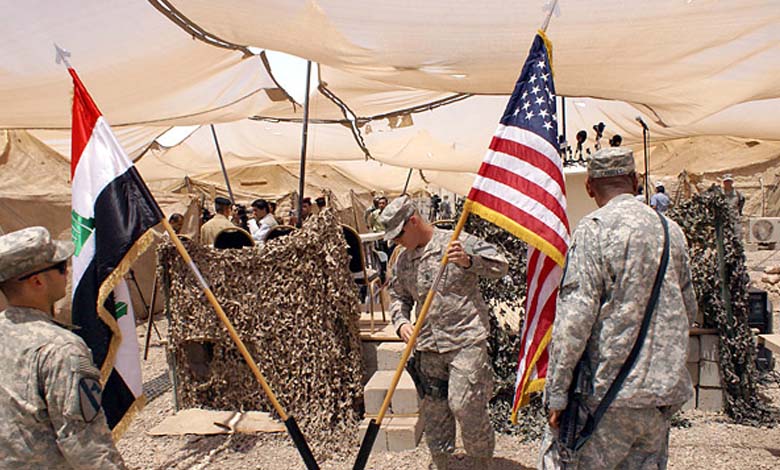The U.S. Congress Discusses Scenarios for American Presence in Iraq
The Iraqi government is concerned about the risks to Iraq's security due to clashes between Iran-backed factions and U.S. forces

Washington is considering the future of its presence in Iraq and the potential changes to it within the alliance and their impact on U.S. interests in the region amidst attacks on American soldiers and airstrikes. They are also evaluating whether changes should be made to the forms of American assistance to Iraqi and Syrian partners.
The Congressional Research Service has raised several questions in a report that need to be addressed regarding this matter, including the importance of this presence, its impact on Washington’s efforts to curb Iranian influence, and how it could affect the risk of wider conflict. Additionally, it examines its potential impact on the Kurdistan region and the Peshmerga forces.
The U.S. report, distributed to lawmakers in the U.S. Congress, highlights the mutual attacks between Iran-backed factions and U.S. forces since the war between Israel and Hamas. It also underscores the Iraqi government’s fears regarding the security risks posed to Iraq due to these confrontations. The government seeks to end the presence of the international coalition against ISIS, led by the United States, and enter into talks about the future of American military presence.
Following the talks held on February 11th, an Iraqi military spokesperson stated that “a timeline will be formulated for the gradual reduction (of forces), leading to the end of the mission of the international coalition forces and transitioning to a bilateral relationship, as long as the peace is not disrupted.” These discussions, described by Defense Minister Lloyd Austin as a “significant” development for the alliance, enable a transition to a permanent bilateral security partnership.
In December 2023, the U.S. Central Command announced that around 2,400 American troops were deployed in Iraq and 800 in Syria. Congress approved U.S. partnership programs to combat ISIS in Iraq and Syria until December 2024. Meanwhile, intermittent attacks on U.S. forces in Iraq and Syria continued, some attributed to Iranian-backed Iraqi armed groups.
Observers noted changes in the patterns of these attacks concerning developments in Iraq, Syria, and the wider region. While American casualties occurred, the U.S. military response targeted facilities affiliated with the Iranian Revolutionary Guard Corps and Iranian-backed factions in Syria and Iraq. Although the Iraqi government described attacks on U.S. forces as hostile acts against Iraq, it considered U.S. strikes on Iraqi soil as a violation of Iraqi sovereignty.
The report mentioned that U.S. military operations in Iraq and the potential use of Iraqi airspace and facilitation of the use of the land borders with Syria facilitate U.S. military operations in Syria, where ISIS militants are more active than in Iraq. Additionally, coalition partner forces are responsible for guarding prisons housing thousands of ISIS fighters.
According to Austin, U.S. forces still “focus on the mission of defeating ISIS, and we are here for no other purpose.” He reiterated in January 2024 the commitment of the United States to deepen its security cooperation to enhance stability in Iraq and the region.
The “Joint Military Cooperation Dialogue” between the United States and Iraq reached an agreement to “consult on a future operation, including the coalition, to determine how the mission of the coalition will evolve based on the following factors: the threat posed by ISIS, operational and environmental requirements, and Iraq’s capabilities.”
As part of those discussions, the Iraqi government reaffirmed “its commitment to protecting U.S. and coalition personnel, convoys, and diplomatic facilities.”
Current meetings of the High Military Committee between the United States and Iraq (HMC) and other working groups may lead to substantial or partial changes or no changes to the American military presence, as confirmed by a statement from the Pentagon spokesperson that “the High Military Committee meeting is not negotiations about the withdrawal of U.S. forces from Iraq.”
Amidst the exploration of potential outcomes, Congress may examine the importance of the U.S. military presence and coalition forces in Iraq and how it is related to U.S. efforts to confront and deter Iran. Additionally, it will consider how this affects the risk of wider conflict, U.S. operations in Syria, and the security of the U.S. embassy and NATO’s mission in Iraq.












